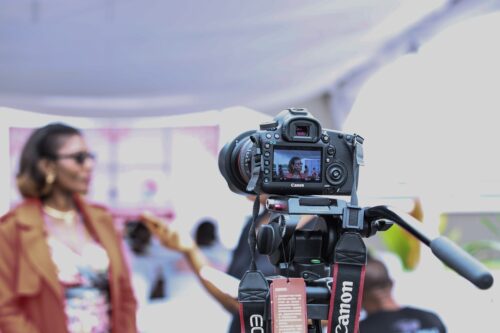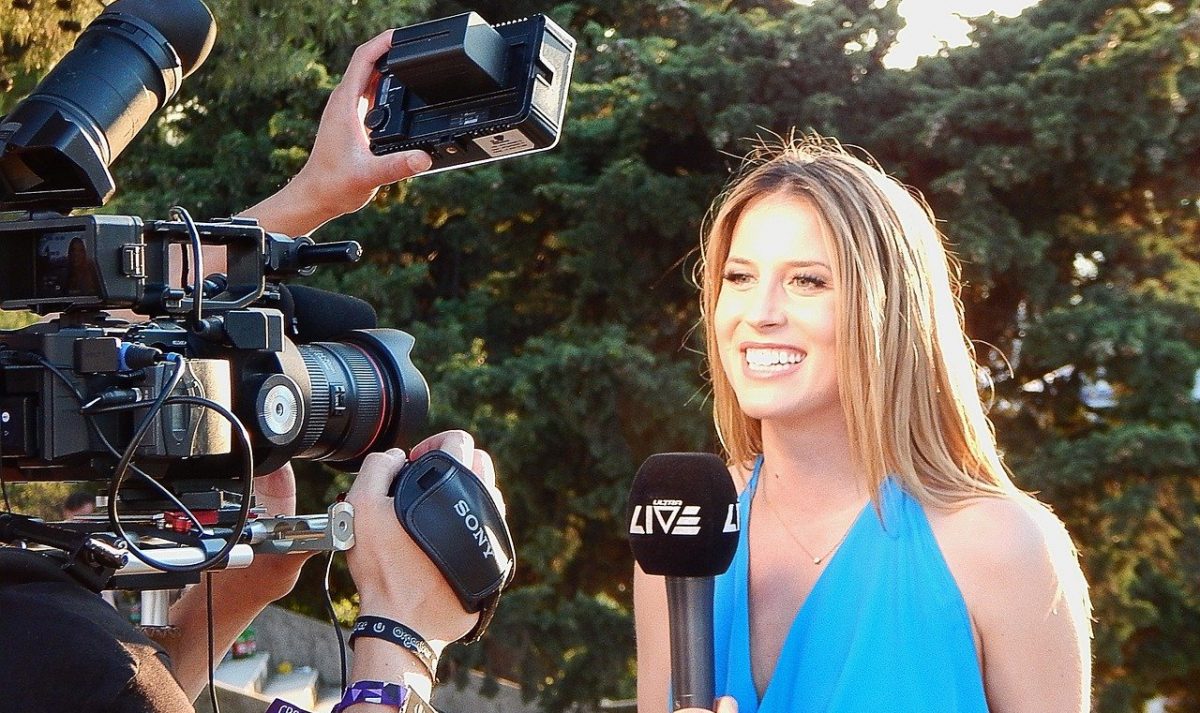Because professional journalists must write, edit, and cross-check news at a far faster rate than citizen journalism, the overwhelming phenomenon of citizen journalism has had a profound impact on the media profession, putting pressure on the ethics and profession of journalism as a consequence.

What Is Citizen Journalism
The phrase “citizen journalism” is frequently used to describe news reporting by regular people. For a long time, the active role of citizen journalism was a relatively new phenomenon in the twenty-first century.
The development of internet connectivity and the availability and portability of technological devices have greatly increased the range of mass communication and news engagement options available to the entire population.
Literally speaking, it refers to the gathering, composition, production, editing, and dissemination of such information and news by those without formal journalism training. This frequently entails having the ability to report current events faster than the typical professional journalist.
Citizen Journalists And Criticisms
Citizen journalists are people from all walks of life who use their smartphones, tablets, portable computers, camera from cell phones, and other cutting-edge electronic devices to gather, share, and critically evaluate news from Weblogs, Wikis, and other information-sharing internet pages. They may need to gain a background in traditional journalism or the mainstream media. With today’s devices and technologies, news can be shared instantly around the world in only a few seconds, taking only a minute to spread.
Given that it allows news items to circulate freely, citizen journalism is unquestionably a highly valued asset of the modern era. This enables coverage of most worldwide occurrences that would otherwise be unattainable for professional journalists.
This could be problematic as, from an ethical perspective, citizen journalism also offers information that is uncontrolled and uneven in terms of distribution and accuracy. When citizen journalists uploaded the films of the horrific wild act, they were unaware that anyone may use the internet these days, regardless of age or gender. As a result, any violent or sexual video can circulate without any limits.
Career journalists or independent journalists frequently criticize citizen journalism for needing more professional training and orientation regarding the media’s guidelines, ethics, customs, and procedures. Despite the enormity of the obstacle, more is needed about how it will affect journalism ethics and the profession as a whole.
The Need For Ethics in Citizen Journalism
Without focusing on journalism ethics, the literature currently in publication emphasizes modern and sophisticated technical methods of newsgathering, its creation, and delivery. When covering a particular topic, citizen journalists fail to maintain the conventional journalistic principle of objectivity, and only journalists with formal training can comprehend the ethical standards that apply to news editors and journalists.
The impact of citizen journalism on reporting ethics is a perennial topic of discussion, even in different forms. The theory is applied to investigate and assess the effects of the actions of using online social networking platforms or social media platforms ( such as Twitter, Facebook, Instagram, and YouTube) as news and information sources.
Even if there are situations that no ethics standard can address, citizen journalists must have a code of ethics and be open about the information they wish to release to the new media public. These are some of the major issues that need to be addressed regardless of the ethical standards that they follow.

Consent
Personal information should, in general, never be disclosed to the society without the subject’s permission. A key factor in evaluating whether an individual’s right to privacy is violated by publishing an aspect of the private life of someone is consent.
To preserve social media users’ or online users’ confidentiality, autonomy, and oversight, informed consent is crucial in substantial social media research. It is a crucial component of excellent practice and an overall ethical and legal concept representing an individual’s right to decide what happens to their body.
Be Aware of Individuals’ Rights
Individuals have a right to know when they are the subject of professional journalism reports, how the data they provide will be utilized, and how it will be presented. One should identify himself as a citizen journalist if participating in an event in that capacity. Given their purpose for being there, offer them the freedom to choose whether or not to speak with the reporter.
Furthermore, one must notify and obtain permission before using any comment from an interview for any purpose other than plain reporting or if the person plans to publish it in a piece of commentary. Individuals have a right to know how their views and public opinion or opinions will be used.
Since the primary framework for safeguarding an individual’s constitutional freedoms and directing the ethical practice of journalism is informed consent, information obtained unethically cannot be used for various reasons in different settings.
Informed consent and agreement with the photograph’s aim, intended usage, and dissemination to the public are crucial key concepts for the general public and citizen journalists to grasp. The conditions under which consent is gained must guarantee that the person is neither persuaded nor forced.
Transparency
The public’s confidence in the media’s reporting is at an all-time low in this era of “fake news.” This issue has worsened in recent years due to increased social media and internet usage. The amount of false information on internet sites has skyrocketed, making it challenging to distinguish the real from the false.
News outlets need to change how transparent they are. The public’s perception of news will improve if media platforms and outlets are more open about where they get their material and how they create their stories.
Corruption might be attributed to this lack of digital media ethics and transparency in the media. A way to lessen unethical and unlawful behavior in the interactions between news organizations and the traditional media is through media transparency and media ethics.
Authenticity And Accountability
People who oppose transparency in reporting indicate a different perspective on what can be accurately interpreted in the news. Generally, ordinary citizens’ journalism does not follow this guideline, making it more difficult for the truth to be the “truth.”
Communicating properly and expressing goals and intents to their audience is crucial for citizen journalists. Finding the goal of journalism guided by aspirations, activities, plans, and ideals is crucial in this regard. Acknowledging mistakes made by citizen journalists is crucial, as is striving for improvement in future reporting.
While there are undoubtedly valid reasons why ordinary people choose to publish anonymously, it’s important to remember that journalists have a fundamental duty of care to their audience. Citizen journalists only allow the public to hold them responsible for any errors they make if they offer a method for people to contact them or offer corrections.
Citizen journalists should publish an example of apology if individuals point out significant errors, such as when they alter events, omit details from the article, or use information that was not present in the first place.
Fact-Checking
Confirming the accuracy of unresolved reports and claims is known as fact-checking. It can be carried out before or following the information is made available or circulated. One way to accomplish this is to carefully and methodically go through the text line by line to seek any inaccuracies or anomalies that might have escaped notice during the first reporting process.
Remember that if people base their actions on inaccurate data, they will make unwise choices that may have unforeseen consequences.
In a broader analysis of human nature, communication, and people’s interrelationships, it is crucial to go beyond current narratives of “facts” and “fake news” and current social and political situations. Fact-checking is a curious method that requires critical inquiry. Citizen journalism is only worthwhile with it.
Remember, false information is deadly. Even if citizen journalists are disseminating information they have obtained from others, they must verify the accuracy of the material before making it public. This frequently entails posing follow-up queries that enable them to corroborate facts and provide explicit source attribution.
The public’s daily benefit is the primary responsibility of citizen journalists. It gets problematic when they publish statements they cannot independently verify, particularly if they could be interpreted as slander, libel, or other offenses.
As before, fact-checking only ensures that an entire population will choose to disregard all proof of facts, but in the absence of such efforts, citizen journalists cede control of each fact to other individuals. The importance of maintaining various factors of skepticism for one’s own and other humanity’s continued existence is emphasized via fact-checking.

Reporting On Vulnerable Subjects
Citizen journalism aims to provide information and inform the public about present-day issues and affairs through news articles and multimedia reporting. They inform people about everything happening around them that they require or desire to know.
It entails writing or presenting compelling news and feature articles that appeal to viewers on a personal level. Journalists’ core values include objectivity, truth, and accuracy. It is advised that citizen journalists be detached from the faiths, organizations, or nations they belong to reduce the possibility of prejudice in their reporting.
However, professionals reporting on young children and other equally vulnerable persons raises significant ethical and legal considerations. Doing background quantitative research, including looking into potential legal consequences, is usually good if citizen journalists are engaged in a story involving kids, legal action, criminal behavior, medical information, or other highly sensitive material.
Thoughts To Consider
Regardless of the idea of training, one should always follow personal ethics when sharing any kind of news, especially if it conflicts with professional ethics. It is important to constantly ask oneself if what they are doing will not hurt someone, whether on purpose or accidentally.
